Double Corrosion Protection Self-Drilling Anchor Bolts for Tunnel Construction
Time:2023-08-30From:sinorock View:
Tunnels stand as crucial arteries of modern transportation and infrastructure development. Whether for transportation networks or utility conduits, tunnels are built to withstand time and pressure. One essential factor that guarantees their structural integrity is the anchoring system. Tunnel construction is a complex process that requires careful planning, precise execution, and the use of reliable anchoring systems. Ordinary anchor bolts may face several challenges in tunneling conditions, compromising the overall integrity of the project. However, our innovative Double Corrosion Protection (DCP) self-drilling anchor bolts offer a superior solution, enhanced durability and protection against corrosion.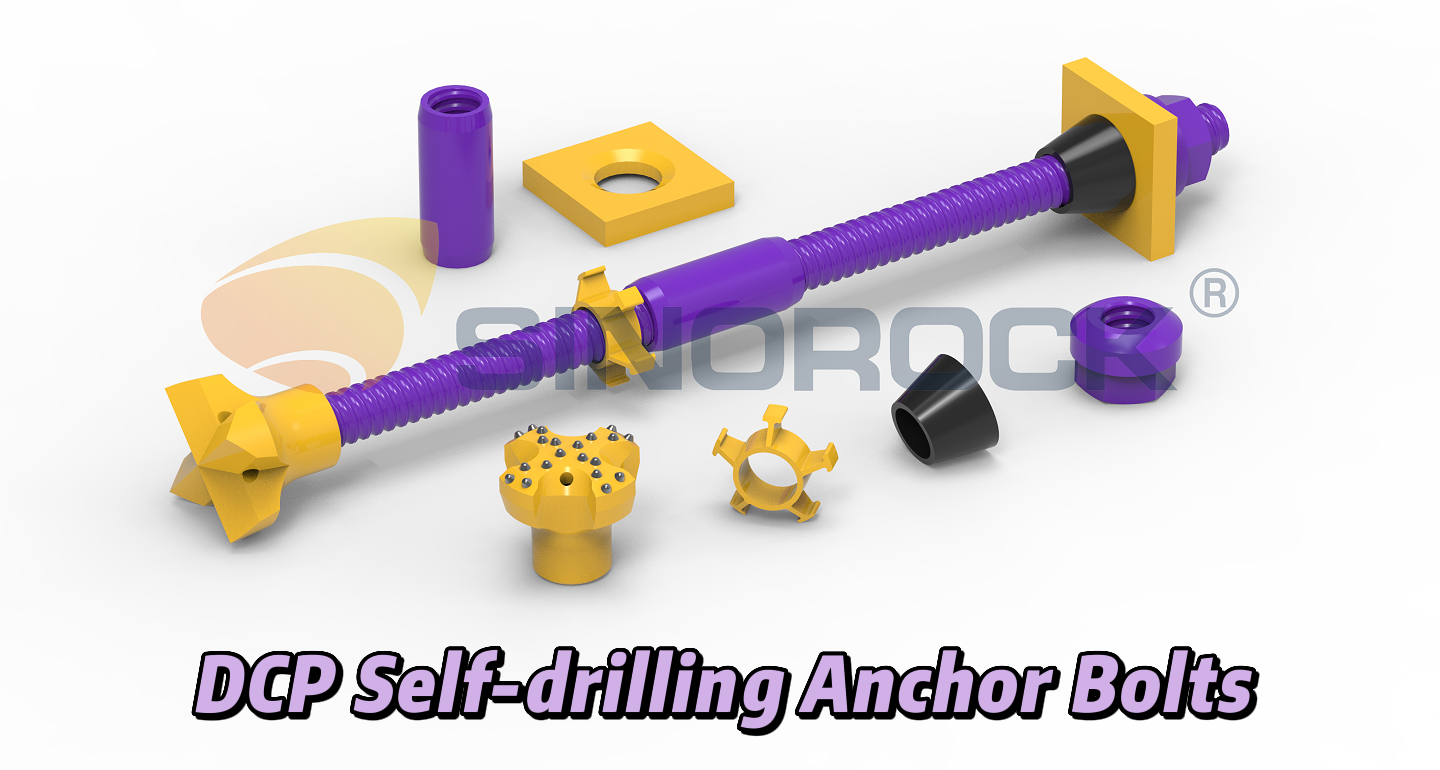
Tunneling Conditions: A Harsh Reality
Tunneling is an intricate process that involves excavating through various geological formations, ranging from solid rock to loose soil. The conditions encountered during tunnel construction can be exceptionally demanding. Engineers must tackle challenges such as unstable ground, high water pressure, and the constant threat of collapsing structures. Traditional anchoring methods often fall short when dealing with these challenges, leading to compromised safety and stability. The following are some common conditions:
1. Ground Instability
Tunneling often occurs in varying geological formations, including rock, soil, and weak strata. Ground instability can result in shifting, collapsing, or squeezing, which can strain conventional anchor bolts and compromise their effectiveness.
2. Water Ingress
Water infiltration is a common issue in tunnel construction, particularly in areas with high groundwater levels. The presence of water can accelerate corrosion, reducing the lifespan and load-bearing capacity of ordinary anchor bolts.
3. Dynamic Loads
Tunnels may be subject to dynamic loads caused by moving vehicles, passing trains, or seismic activity. These loads require anchoring systems that can withstand vibration and provide long-term stability.
Limitations of Ordinary Anchor Bolts
While effective in specific applications, ordinary anchor bolts may not be the ideal solution for tunneling projects. They typically require pre-drilling and grouting, adding time and complexity to the construction process. In corrosive environments, these bolts are susceptible to deterioration over time, which can weaken their holding capacity and jeopardize the tunnel's stability. Moreover, the installation of ordinary anchor bolts in confined spaces can be arduous and time-consuming.
1. Corrosion Susceptibility
Traditional anchor bolts are prone to corrosion when exposed to moisture and chemicals present in the tunnel environment. Corrosion weakens the bolts, reducing their load-bearing capacity and compromising the overall stability of the tunnel.
2. Time-Consuming Installation
Installing ordinary anchor bolts typically involves drilling, grouting, and waiting for the grout to cure. This process can be time-consuming, leading to project delays and increased costs.
3. Limited Load Capacity
Ordinary anchor bolts may not offer sufficient load capacity to meet the demands of tunneling projects. This limitation can compromise the structural integrity of the tunnel and pose safety risks to workers and infrastructure.
Manufacturing Process of DCP Self-Drilling Anchor Bolts
Double Corrosion Protection (DCP) self-drilling anchor bolts are specifically designed to address the challenges faced in tunnel construction. The manufacturing process involves several critical steps that contribute to their superior performance and longevity.
1. Material Selection
High-quality steel is chosen for its exceptional strength and durability. This ensures that the anchor bolts can withstand the pressures and stresses experienced in tunneling environments.
2. Hot-Dip Galvanization
The anchor bolts are hot-dip galvanized to provide a primary layer of corrosion protection. This process involves immersing the bolts in molten zinc, ensuring a uniform and durable zinc coating.
3. Epoxy Coating
An additional epoxy coating is applied to the anchor bolts, providing a secondary layer of corrosion protection. This coating further enhances the bolts' resistance to moisture, chemicals, and other corrosive agents.
4. Self-Drilling Design
The self-drilling feature eliminates the need for pre-drilling, streamlining the installation process. This design allows the anchor bolts to bore through various geological formations with ease, saving valuable time during construction.
5. Grouting Efficiency
The unique thread design of DCP anchor bolts enables efficient grout distribution along the entire length of the bolt. This results in a solid bond between the bolt and the surrounding rock or soil, enhancing stability.
Advantages of DCP Self-Drilling Anchor Bolts for Tunnel Construction
The benefits of using DCP self-drilling anchor bolts in tunnel construction are substantial and can be summarized as follows:
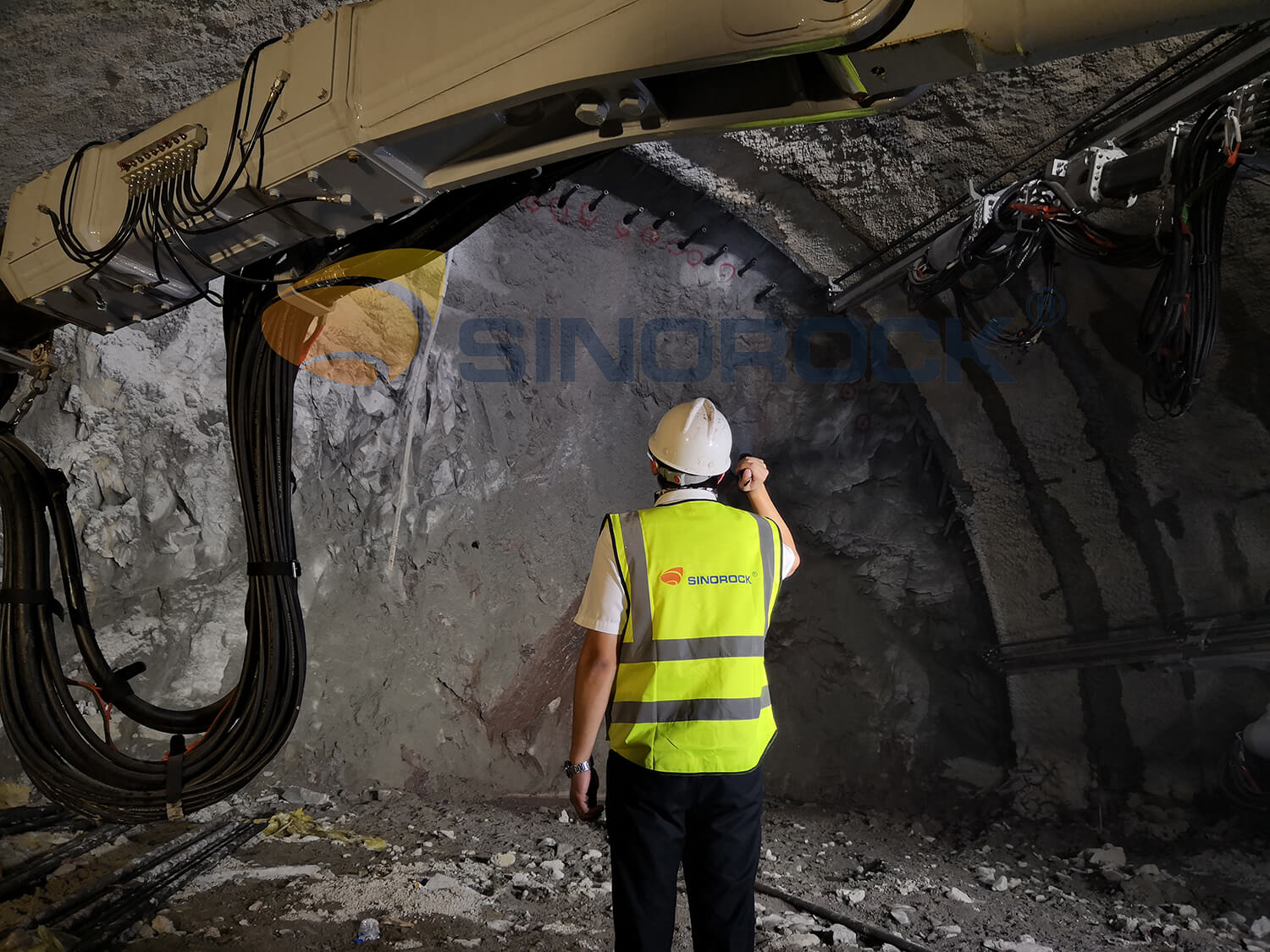
1. Enhanced Corrosion Protection
The dual-layer corrosion protection ensures the longevity of the self-drilling anchor bolts, even in aggressive tunnel environments where moisture and chemicals are prevalent.
2. Time and Cost Efficiency
The self-drilling design eliminates the need for pre-drilling, reducing labor hours and costs associated with installation. This efficiency is especially crucial in time-sensitive tunneling projects.
3. Increased Stability
The secure bonding achieved through efficient grouting and the high load-bearing capacity of DCP anchor bolts contribute to the overall stability of the tunnel structure.
4. Reduced Maintenance
The long service life of DCP anchor bolts minimizes the need for frequent maintenance and replacements, resulting in long-term cost savings.
5. Adaptability
DCP anchor bolts are designed to accommodate various geological conditions, making them versatile for use in tunnels with differing rock or soil compositions.
6. Safety Enhancement
The reliability of DCP anchor bolts in ensuring tunnel stability translates to a safer working environment for construction personnel and a reduced risk of structural failures.
Conclusion
When it comes to tunnel construction, the partnership between innovation and reliability is crucial. Safety, stability, and durability are non-negotiable factors, and meeting these demands requires an anchor system that can truly withstand the test of time and the challenges posed by tunneling conditions. The fusion of advanced materials, dual-layer corrosion protection, self-drilling efficiency, and impressive load-bearing capabilities make DCP anchor bolts the ideal choice for ensuring the success of tunneling endeavors.
Sinorock's dedication to excellence translates into safer, more efficient, and cost-effective construction processes. With Sinorock as your partner, you're not just building tunnels but constructing a legacy of innovation and reliability that stands the test of time. If you have any needs or questions about self-drilling anchor systems, please feel free to contact us at sinorock@sinorockco.com.
latest news
-
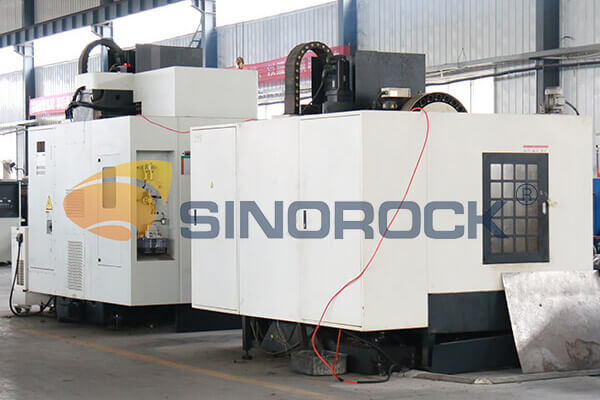
- 3 Crucial Factors That Impact the Quality of Self-Drilling Hollow Bolts
- Time:2025-01-26From:This Site
- As we all know, the quality of the self-drilling hollow bolts is vital to the whole project. It determines if the project is safe for the people in future use. Then, what will affect the quality of the self-drilling hollow bolts?
- View details
-

- Self-Drilling Anchor Bolt Construction in Complex Geological Slope
- Time:2025-01-24From:This Site
- During construction, Self-drilling hollow anchor bolt integrates drilling, grouting and anchoring functions, which significantly improves drilling efficiency. And under the action of pressure pump, the grouting in the rock strata and voids is full, which ensures the grouting thickness and anchoring effect.
- View details
-
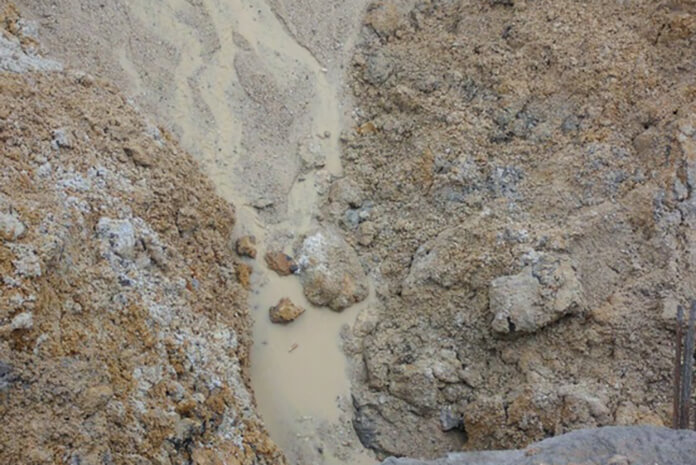
- How Does Self-drilling Rock Bolt Drill in Quicksand Geological Condition?
- Time:2025-01-19From:This Site
- This in-depth guide explores how self-drilling rock bolts function in quicksand geological conditions, covering the challenges, construction methods, and best practices for ensuring effective anchorage in unstable, fluidic soil layers.
- View details
-
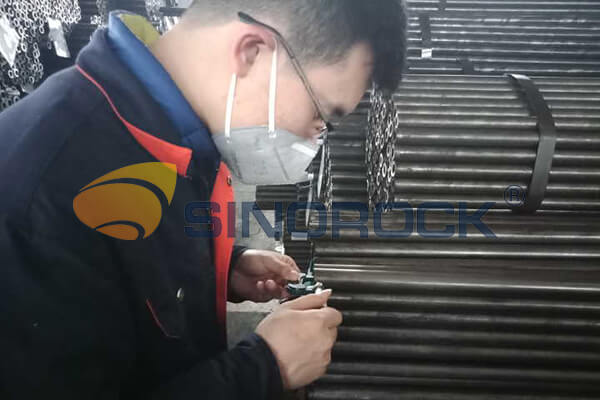
- Quality Control: the Vital Factor of A SDA Bolt Factory
- Time:2025-01-09From:This Site
- Sinorock’s comprehensive quality control system, from supplier management to outgoing inspections, ensuring the highest standards for self-drilling anchor bolts in construction.
- View details
-
.png)
- International Women's Day with Strawberry-picking
- Time:2024-03-09From:This Site
- Marked the annual observance of International Women's Day, and to commemorate this significant event, Sinorock organized a special strawberry-picking event exclusively for its female employees.
- View details
-

- Celebrate the 74th anniversary of the founding of the People's Republic of China
- Time:2023-10-01From:This Site
- On October 1st every year, we observe the annual National Day, commemorating the birth of our beloved motherland.
- View details
-
.jpg)
- SINOROCK to Attend EXPOMINA PERÚ 2024 in Lima, Peru
- Time:2024-08-10From:This Site
- Sinorock to Attend EXPOMINA PERÚ 2024 in Lima, Peru
- View details
-
.jpg)
- SINOROCK to Participate in MINING AND METALS CENTRAL ASIA 2024
- Time:2024-08-08From:This Site
- SINOROCK to Participate in MINING AND METALS CENTRAL ASIA 2024
- View details
-
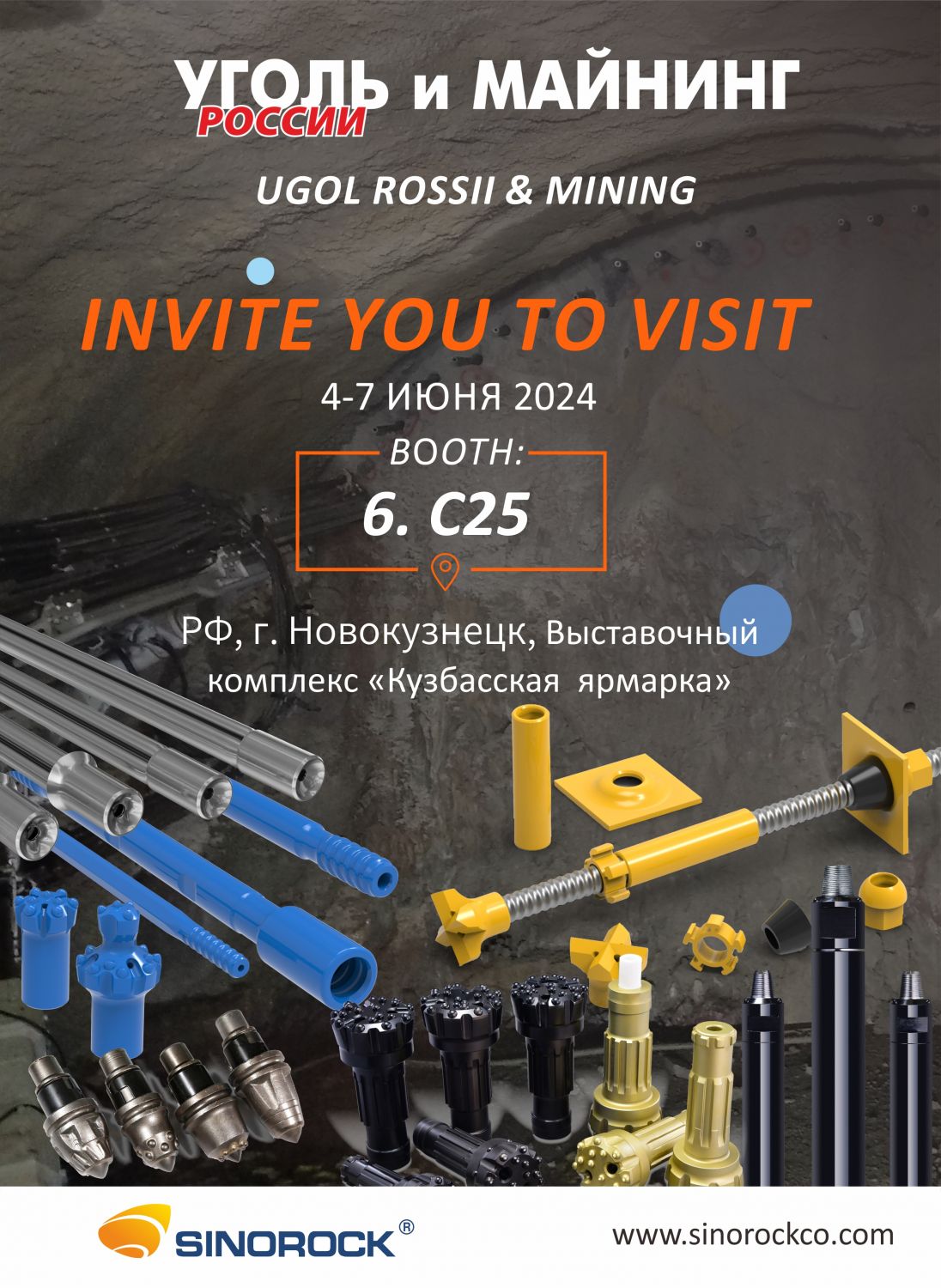
- SINOROCK Gears Up for UGOL ROSSII & MINING 2024 with Custom Mining Solutions
- Time:2024-05-15From:This Site
- SINOROCK is thrilled to announce its participation in the highly anticipated 32nd International Trade Fair for Mining Technology, UGOL ROSSII & MINING 2024. The event will take place at the Exhibition complex "Kuzbass Fair" in Novokuznetsk, Kemerovo region - Kuzbass, Russia, from June 4th to 7th, 2024.
- View details
 Download
Download 


